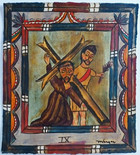Station IX: Christ Falls the Third Time
He has cast me into the mire, and I am become like dust and ashes. (Job 30:19)
Golgotha is near. The nails, hammer, and rope lie waiting. Having reached the utter limits of physical endurance, Christ falls a third time. At this stage in the iconography of the Stations of the Cross artists show Jesus prostrate on the ground, often with his head bowed to the earth. To say he “bites the dust” would be no exaggeration.
“Dust” is a term laden with sacred significance. In the opening chapters of the Bible, we read how God “formed man of the dust of the ground and breathed into his nostrils the breath of life (Genesis 2:17)." After the temptation of Adam and Eve in the Garden of Eden, an angry God expels these first humans from paradise with the grim pronouncement “for dust thou art and unto dust thou shall return (Genesis 3:19)." East of Eden, dust becomes the prime symbol of human mortality, a reminder of humanity’s fallen place in Creation.
Dust figures prominently in biblical rites of repentance, mourning, and cleansing. Joshua and the elders of Israel tear their clothes and “put dust upon their heads,” as an act of contrition for disobeying divine orders in the conquest of Canaan (Joshua 7:6). Idols of false gods were to be completely pulverized into dust and scattered, following the example of Moses, who destroyed the Golden Calf, ground it into dust, and threw the powder into water, which the disobedient Children of Israel were forced to drink (Exodus 32:20, Deuteronomy 9:21). There was nothing worse you could wish an enemy in biblical times than for him to “lick the dust (Psalm 72:9)."
By this time in his ordeal, Jesus mouth must have been so full of grit, he was choking from it. My strength is dried up like a potsherd; and my tongue cleaveth to my jaws; and thou hast brought me into the dust of death. Christ may well have recalled these words in Psalm 22:15 , as he dragged himself to the end of the Via Dolorosa and made ready for all the torments, which lay ahead. He cries out the opening lines of this same prophetic psalm later from the Cross in his moment of greatest abandonment. My God, my God, why hast thou forsaken me?
But no one is left to lie in the dust in God’s plan of salvation. Those who fall do have the hope of rising again. In Isaiah 26:19, we read: “Thy dead men shall live; together with my dead body shall they arise. Awake and sing, ye that dwell in dust for thy dew is as the dew of herbs, and the earth shall cast out the dead.”
When I have fallen as low as I can possibly go, help me to remember you have been there before me. Just as you have risen from the dust, so may I also rise. Amen.
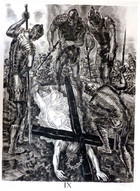
Albert Decaris
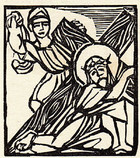
Jean Marchand
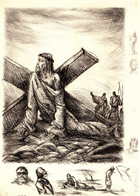
Andre Collot
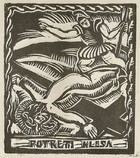
Unknown Czech artist

Elisabeth de la Mauviniere
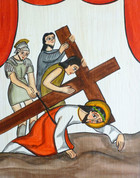
Marie Romero Cash
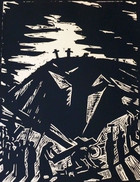
Max Thalmann
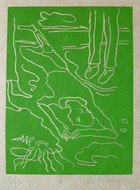
Adrian Wiszniewski
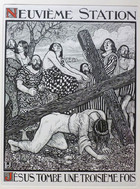
Louis Jou
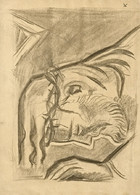
Master of the Stalag VI D Stations
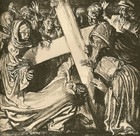
Frank Brangwyn
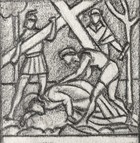
Arthur Kemp
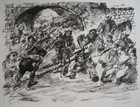
Lovis Corinth
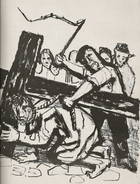
Otto Dix

Maurice Denis
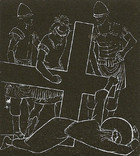
Pat M. Mallinson
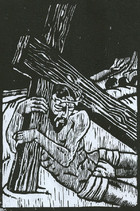
Charles Aldrich
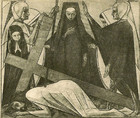
Jan Toorop
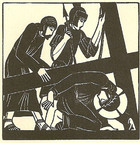
Eric Gill
